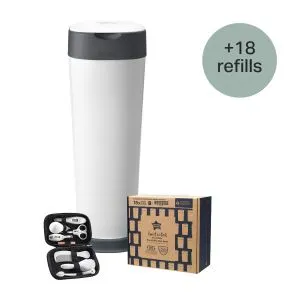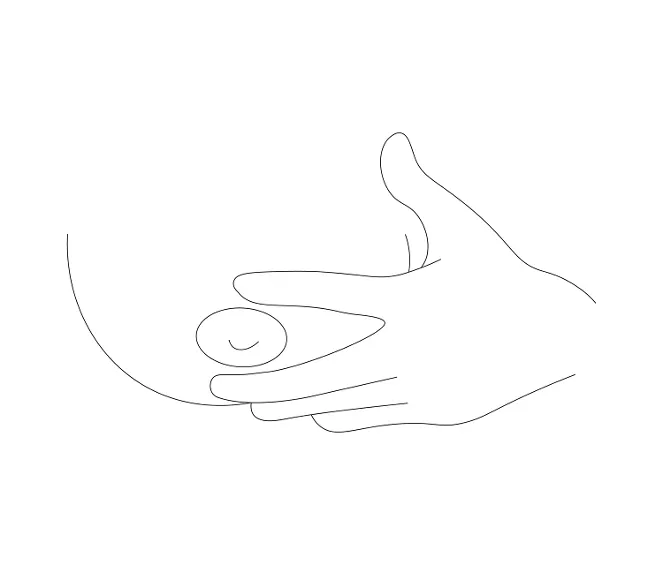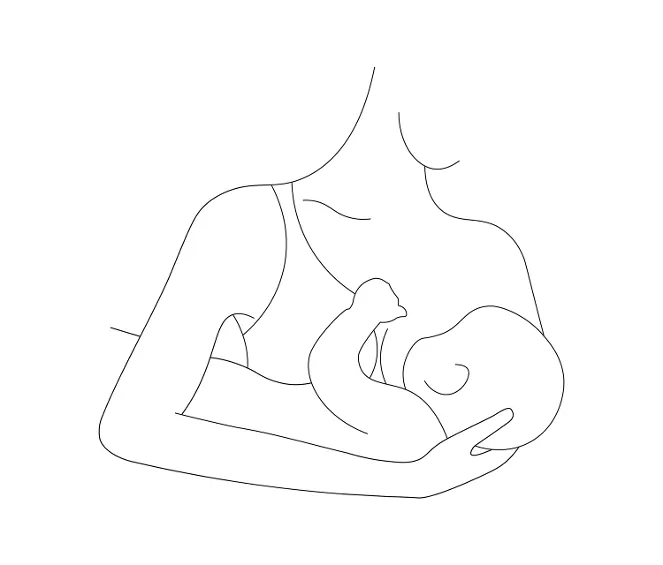
Ultimate XL Nappy Disposal Bundle with 18 Refills
Bundle & Save 40%
Subscription orders can be cancelled at anytime. Free delivery on all subsequent subscription orders. Find out more about subscriptions.
They’re easy and fuss free
Your products are automatically sent to you
You save up to 10% when you sign up for a subscription
You can cancel at any time

Breasts come in all shapes and sizes, and it's common for their shape and size to change during pregnancy and while you're breastfeeding your little one once they're born. But, if your breasts are on the smaller side, you might be worried that your cup size could impact your ability to breastfeed.
Don't worry though, we're here to put your mind at ease. Let's squash some common milk supply concerns and cover some top tips that can make breastfeeding with smaller breats easier.
No, the size of your breats doesn't directly influence your breast supply.
Your breasts are made up of fatty, glandular, and connective tissues. Their size reflects how much fatty tissue there is, but it's the glandular tissue in your breasts that produces breast milk. Because of this, people with smaller breasts can still experience under or overproduction of breast milk.

This small-breast-friendly breastfeeding hold is also known as the scissor grasp, and it's another way to hold your breast while your baby is latching on to breastfeed. You may find that it feels more comfortable than the C-Hold that's designed for women with bigger breasts.
Explore the Range
In this small-breast-friendly position, your baby is supported at the side of your body (like how a rugby player carries a ball).

Whichever breastfeeding position you find works best for you, remember...
Whether your breasts are small, big, or somewhere in between, you should take pride in the fact that you're breastfeeding and helping your baby grow and thrive. By tracking your baby's growth and development with the help of your doctor, midwife, health visitor or lactation consultant, you can be reassured that they're growing at a normal pace, feeding well, and getting all the goodness from your breast milk.
Taking care of yourself and your baby is all that matters, but if you're struggling to breastfeed your baby, don't be afraid to ask for help and advice. Lactation consultants, breastfeeding support groups, other parents, and local resources can all support you during your breastfeeding journey.
If you are wanting to increase your breast milk supply, there are a few things you can try...